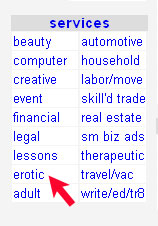 There has been a lot of hand-wringing and some thought-provoking articles on the web lately dealing with what is, essentially, the beginning of the end for print newspapers (ditto for magazines, but they may fare a little better). This has moved from a “yeah, we can see that coming…” to, well, it’s here.
There has been a lot of hand-wringing and some thought-provoking articles on the web lately dealing with what is, essentially, the beginning of the end for print newspapers (ditto for magazines, but they may fare a little better). This has moved from a “yeah, we can see that coming…” to, well, it’s here.
The Seattle Post-Intelligencer went web only this past week; the Rocky Mountain News printed its last edition Feb. 27, 2009. This leaves both towns (Seattle and Denver) with only one paper. The San Francisco Chronicle is close to folding; its parent company (Hearst) has indicated that it wants to sell the paper, and – if it gets no takers – it may well shut down the print edition.
In Chicago, both dailies are in trouble – the Chicago Tribune has filed for bankruptcy protection, and the Sun-Times has endured large layoffs and its parent company is currently on the selling block. (UPDATE 3/31/2009 – The Sun-Time’s parent company has filed for bankruptcy.)
Print newspapers are, to put it mildly, looking at that light at the end of the tunnel. And it ‘taint sunshine.
So there are a lot of people trying to figure out what comes next for news: Dave Winer, Steve Johnson and Scott Rosenberg all have excellent posts. Read them. (Update 3/23/2009 – I forgot Clay Shirky’s excellent piece.)
Let’s condense down some of the points from these gifted writers (Winer is a technologist, but he is also the first/among the first bloggers. And he’s a bright guy who knows how technology can be disruptive):
- Print newspapers are on their way out. This writing’s been on the wall ever since Craig Newmark launched his little community site, but – much like the music and movies industries – newspapers could not reconcile themselves to not having massive profits (and all the control), so they missed virtually all opportunities to leverage the internet.
- The underlying cause for this death spiral is the internet. Different parties may have different opinions on how the internet is hurting print newspapers, but I think everyone agrees with this as the cause.
- Newspapers equate newspapers with journalism. As in, if print newspapers go under, there won’t be any more journalism. This is bunk.
- Newspapers don’t want to admit they are legacy. They keep trying to get the traditional models ported to the web – funded by Google, taxes on laptop batteries (i.e. a blogger tax) or subscriptions/some other pay-for-content model. Again, bunk.
- We’re still in the midst of this massive change. No one really has a clue as to what happens next.
I agree with what’s summarized above, and I’d like to add a bunch of my own thoughts.
* * *
The idea that print controls the news is over. This ideal started to fail when Ted Turner made the move to have a 24-hour news channel. Good or bad (depends on your point of view), CNN has forever changed news coverage, and – in some ways (mainly up-to-the-minute news) – presaged the impact the web/blogs have had on print news.
While TV news has hurt newspapers, it was CNN that really landed a body blow. Take, for example, financial news. Local/network news will only report big financial news (IBM lays off 1,000 workers or news about a large local company). For info about how your Acme Explosives stock is doing, you used the business section to view stock rates and see some analysis. CNN – with a running ticker and financial segments throughout the day – cut into the need for perusing the business section.
And that’s just one example. The internet took this “all info, all the time” CNN example to a whole new level.
With blogs – or wikis or community-driven sites – the barrier to entry is gone. Anyone with access to a computer can open a free Blogger account and be, essentially, a publisher.
That doesn’t mean that most of them will be solid journalistic endeavors, but so what? If they fulfill a need, so be it. If they don’t, they won’t really matter.
On the other hand, some blogs will offer solid journalism. Josh Marshall and his team at talkingpointsmemo.com, for example, have done some brilliant work over the past few years – Marshall even won a prestigious Polk Award.
So don’t tell me “blogger” necessarily equals “lack of journalism chops.” (And Marshall makes a living off his blogs – as do many of his employees. It can be a sustainable business model.)
Yet old-time newspaper editors – the ones today clinging to the outdated medium – equate bloggers with lack of experience, lack of investigate skills and so on. It reminds me of how the right wing tried to paint President Obama’s stimulus bill as socialist, with “socialist” loaded with very negative connotations.
Get it? Capitalism is good; socialism is bad. Guess we better ditch Social Security, the FDIC, Medicare and Medicaid, disband the government tools like, uh, the Army, Navy, fire departments and so on.
The blogger=bad journalism is painting with the same wide brush. As though all bloggers are living in their parents’ basement and think The Chicago Manual of Style is put out by Vogue.
As for the argument that only print does real investigative work, well, I have two responses:
- How much investigative journalism are newspapers today really doing? Lots of AP & Reuters stories, covering the latest celebrity melt-down, and recipes. Not exactly All the President’s Men….
- Why can’t an online site – single person or not – do investigative journalism? A lot of this work is just a lot of legwork; putting the pieces together. Why does someone in front of a computer do less of this than a person at a news desk? And – online – there’s the community effect. Have all your readers call their representative to ask about X and report what he/she said. Powerful.
But the ink-stained masses continue to cling to the belief that only print journalists can do real journalism – and so when these workers move online, the copy they produce should be paid for, not free. Newsprinters who tout this idea generally support this concept with one of two arguments:
- The Wall Street Journal charges for subs!
- The micropayment model works on iTunes!
To the first, I say: Financial data/analysis is one of the few things people will pay for, and – more importantly – people aren’t paying for the subscriptions: They expense it. Their companies are paying for it. This model won’t extend to charging for recipes…
As far as the iTunes argument goes, well, it doesn’t hold any water.
I want “Born to Run” sung by Bruce Springsteen, not by anyone else. So that has value. And I’ll listen to the song over and over – again, value.
But news? I just want to know what blew up in Iraq today. If I can’t get it for free at one spot, I’ll go somewhere where it is free. I’ll read the article and never return to it again. With the rise of no barrier to publishing, there are a zillion places I can get that info. Many will write up said news, some will charge, but there’s going to be a lot of people publishing the news, doing it well, and doing it for free. It’s the law of large numbers.
And I say all of this as someone who has a degree in English, has worked in publishing as a writer/editor, and who until last year had never been without a daily newspaper. In college and when I was first working and making crap, I always had the daily newspaper. Required reading.
I still get the Sunday paper (Chicago Tribune), but I just skim it (if that). Just nothing of worth there, for the most part.
It saddens me, but it’s a reality: print is at the end of the road. Newspapers are too expensive to produce, and – with the rise of the internet – just not nimble enough to compete.
And just about everyone knows it – except many of those working at newspapers.
So, what comes next?
I have some thoughts on that for a future entry.





 There has been a lot of hand-wringing and some thought-provoking articles on the web lately dealing with what is, essentially, the beginning of the end for print newspapers (ditto for magazines, but they may fare a little better). This has moved from a “yeah, we can see that coming…” to, well, it’s here.
There has been a lot of hand-wringing and some thought-provoking articles on the web lately dealing with what is, essentially, the beginning of the end for print newspapers (ditto for magazines, but they may fare a little better). This has moved from a “yeah, we can see that coming…” to, well, it’s here.  Roger and Me
Roger and Me